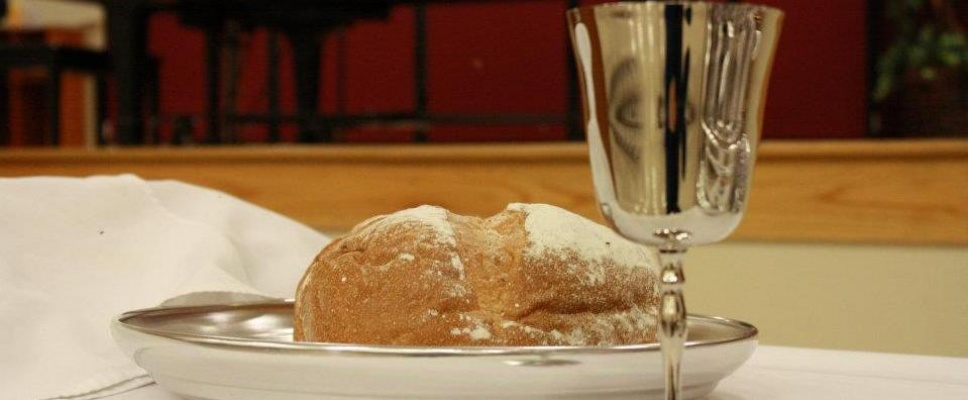Eating is amazing. From the smells, textures, and tastes that contribute to its enjoyment (or lack thereof) to how the food becomes a part of the eater, the whole activity of eating is a wonder. The food we consume doesn’t remain what it was. Not only does it change form in our mouths, as it moves through our bodies it becomes our body. Food is transformed into us. Proteins and amino acids become a part of our muscles. Carbohydrates are transformed into glucose energizing the body. Fats absorb and transport essential vitamins throughout the body. What we eat becomes us.
Until it doesn’t. There are times when what we eat doesn’t agree with our bodies. The mouth eats and swallows, the stomach receives, but the food never becomes the body. When this happens the body rejects it and we vomit. The food is in the body but it is not the body (Leithart, Peter, Revelation 1–11, 202).
The Laodicean pastor and church were under the threat of being vomited out of Jesus’s body because they weren’t agreeable to the body (Rev 3.16). The body of Jesus couldn’t make use of this church as food. Their lukewarmness caused the body of Jesus to be nauseated and would eventually lead to convulsing that would expel them so that the body could remain healthy.
This image reflects a couple of images found in Scripture. One is that of the threat given to Israel concerning their residence in the promised land. God promised them that if they lived like the nations who were already vomited out of the land then they themselves would be vomited out of the land (Lev 18.24-28; 20.22). Jesus’s body, the church, is the promised land. Just like the land of promise of old, this land will not abide the presence of abominations. Jesus’s body will vomit out all of those who live contrary to and threaten the health of his body.
Jesus’s words to the pastor in Laodicea also reflect the fundamental nature of worship revealed in the offerings and sacrifices prescribed in Leviticus. Animals, wheat, and oils were all turned into smoke on the altar as food for God. God consumed the worshiper via these various offerings. The worshiper was food for God to be incorporated into his body. The worshiper would be transformed and become a part of the life of God.
But if the worshiper came living a life of sin without the intent of confessing and repenting, his worship would stink in God’s nostrils, and God would vomit him out. This is the relationship of the Laodicean pastor and church to Jesus. Their worship is nauseating. Their life as a church has nothing to contribute to health of Jesus’s body. They are in the body but not the body.
Jesus makes clear that the problem is the willful blindness of pastor and congregation to their true condition before him. They have lost the ability to discern, to judge, their condition because they are not listening to Jesus’s judgments. They have used another standard of judgment.
The lukewarm church is not merely the church that has lost some zeal (even though that is the case as well). The lukewarm church is the church that chooses its own judgments above the judgments of Jesus. It is the pastor and church that says, “I know Jesus said, ‘Don’t eat that fruit,’ but it looks good to me and will make me wise.” It is the pastor and church who say, “I know Jesus says that you are to deal with sin through discipline and with the potential of excommunication, but we say that this process is harsh.” It is the pastor and church who say, “I know Jesus says that all sex outside of the bonds of marriage between a man and woman are sin, but we say that these people were born this way and can’t be different.” It is the pastor and church who say, “I know Jesus has clear qualifications for who will lead his church, but we need good, savvy business men no matter their spiritual health.” It is the pastor and church who say, “I know Jesus said to forgive those who wrong you when they ask for forgiveness, but we say that we have the right to hold bitterness and keep bringing these matters up again and again.” It is the pastor and church who say, “I know Jesus says that we are to confront sin and confess our sins to one another, but we say, ‘Live and let live.’ If you will ignore my sin, then I’ll ignore yours.”
When you live making these judgments long enough, they become such a part of you that you no longer know your real need (Rev 3.17). You have lied to yourself for so long that it has become your reality. But it is not reality no matter how much you believe it.
The only answer is to come to Jesus and ask him to give you his eye salve so that you can see your need. He does this through the preached Word and faithful brothers and sisters who will, out love, wound you so that you can be healed and become a healthy part of the body of Christ.
He who has an ear, let him hear what the Spirit says to the churches.













